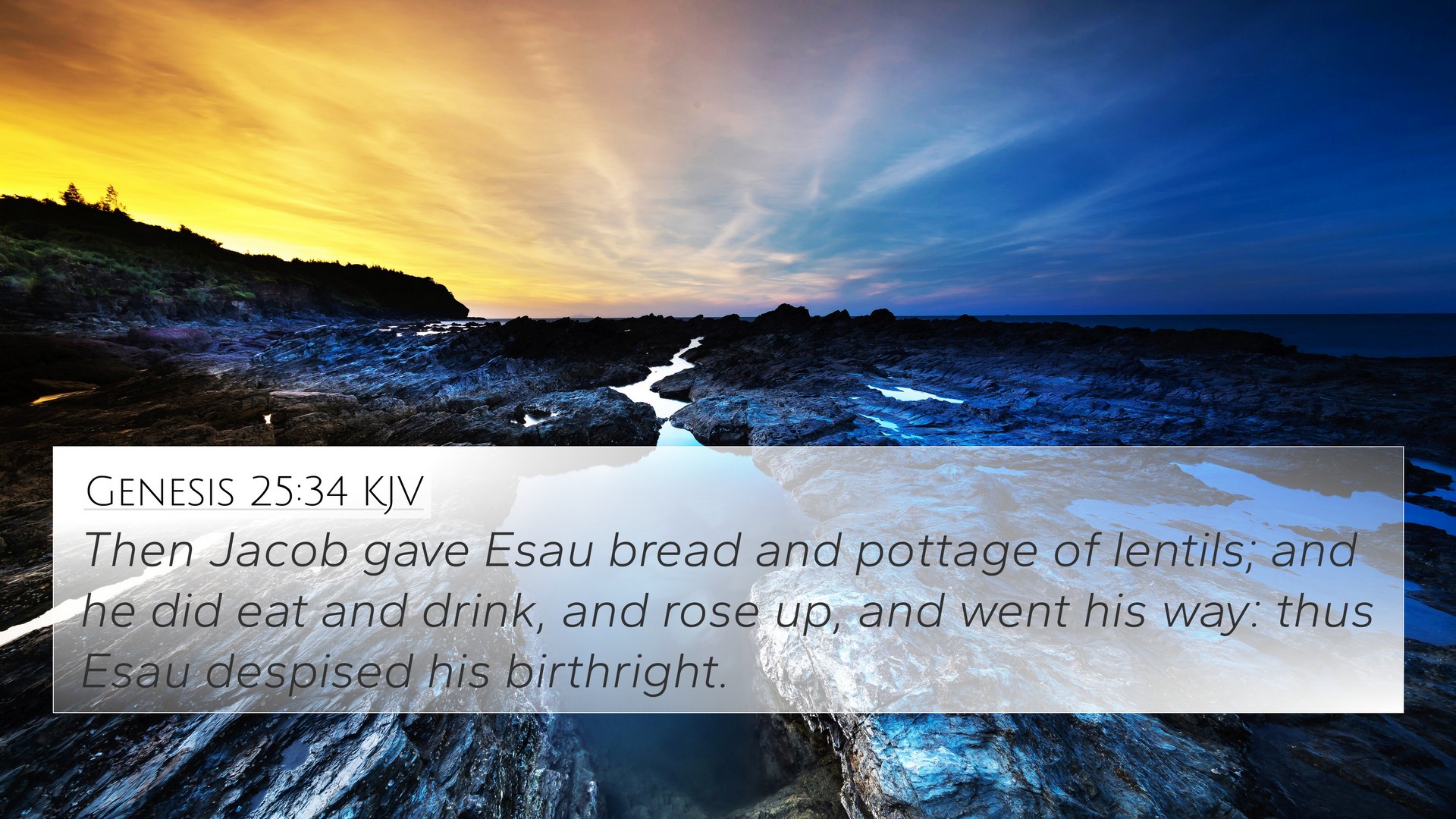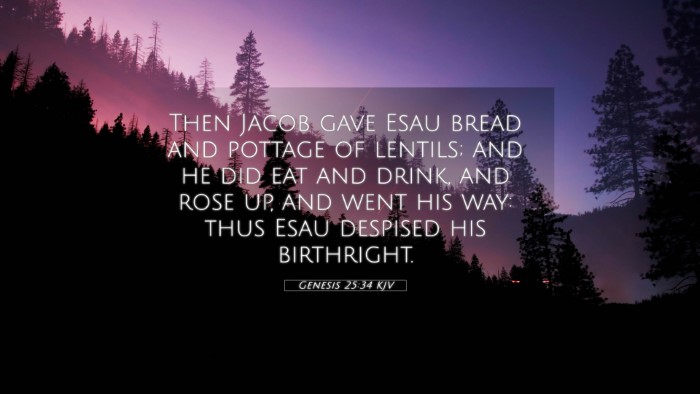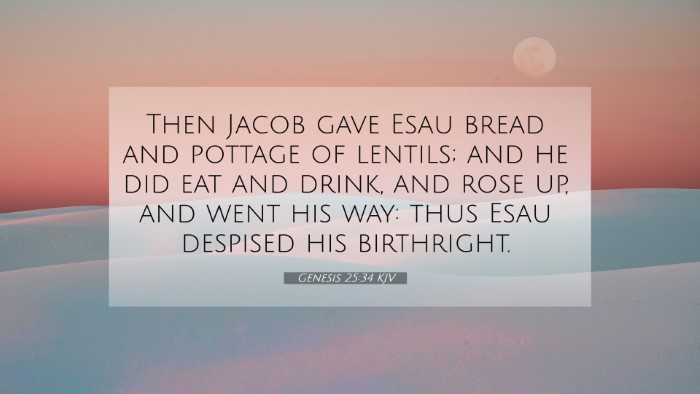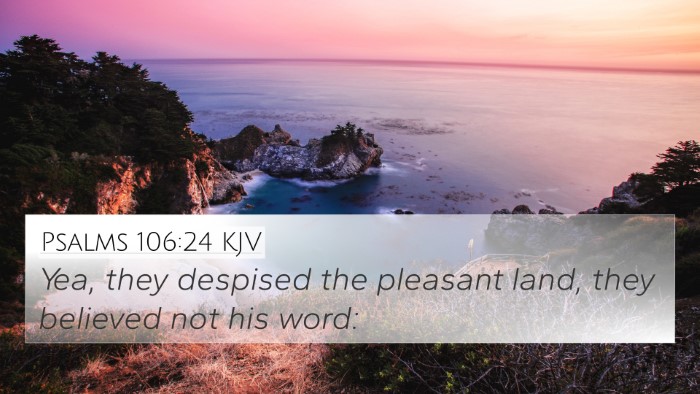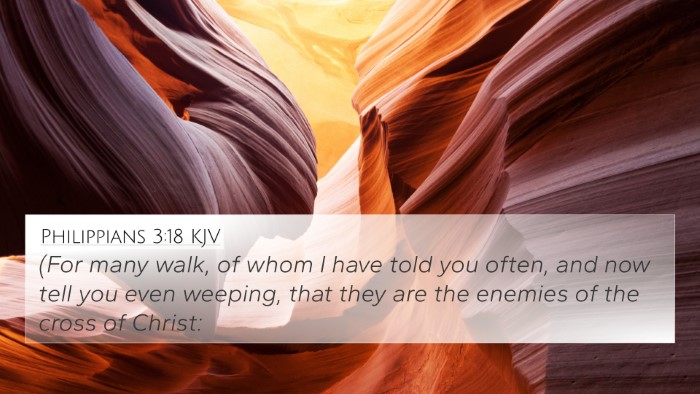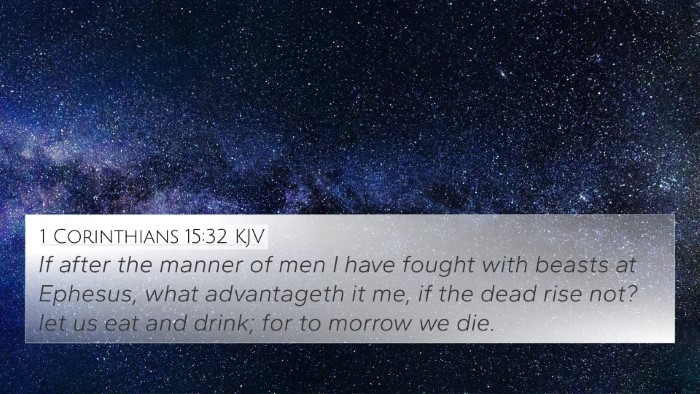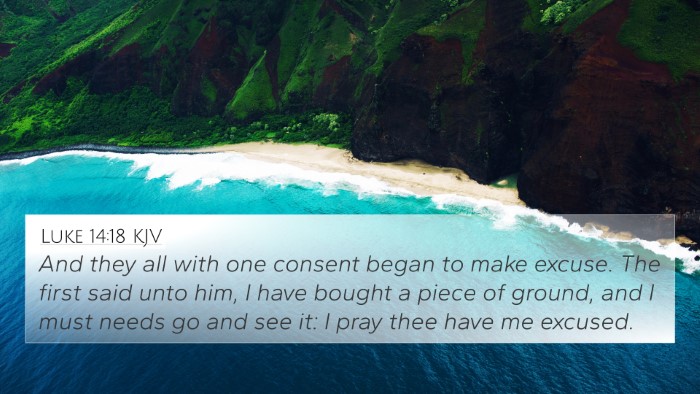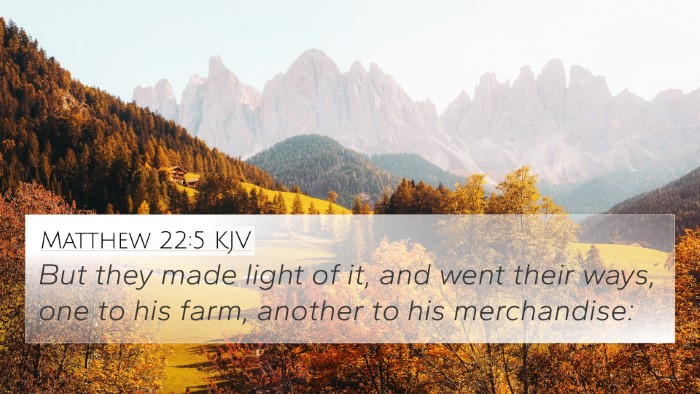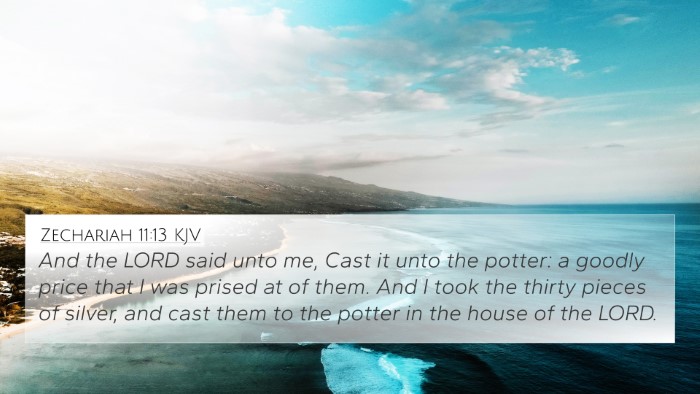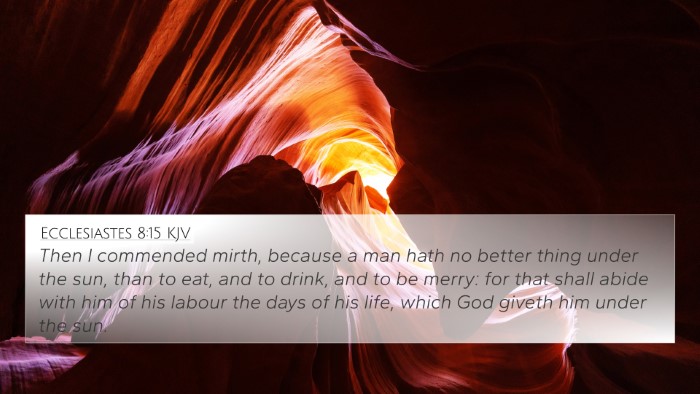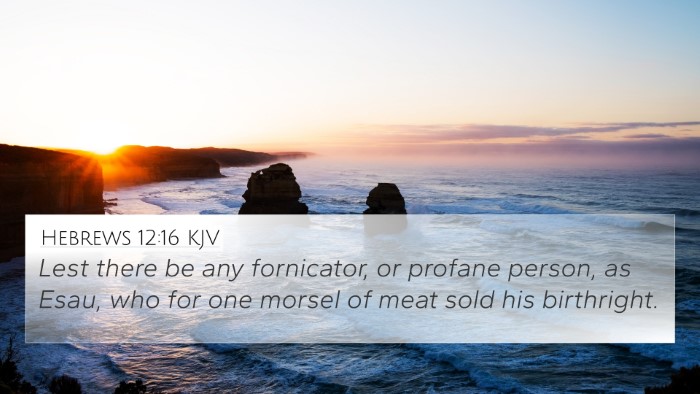Understanding Genesis 25:34
Verse: "Then Jacob gave Esau bread and pottage of lentils; and he did eat and drink, and rose up, and went his way: thus Esau despised his birthright."
Summary and Interpretation
This verse highlights a pivotal moment in the lives of Jacob and Esau, depicting a transaction that ultimately signifies Esau's disregard for his birthright. Understanding the significance of this passage requires examining the cultural context of birthrights, appetite, and priority.
Key Insights from Commentaries
- Matthew Henry: Henry notes that Esau, driven by his immediate needs and desires, trades his birthright for food. This act illustrates human folly, as he undervalues the spiritual and familial significance of the birthright by prioritizing momentary satisfaction.
- Albert Barnes: Barnes points out that the transaction represents the impulsiveness of fleshly desires. Esau's willingness to exchange his birthright underlines a broader theme of spiritual insensitivity; he was not only careless about earthly inheritance but also his standing in the covenant people of God.
- Adam Clarke: Clarke suggests interpreting the “pottage of lentils” as a symbol of Esau’s shortsightedness. This act reflects a profound insight into character, revealing that he would rather have temporary pleasure than future blessings, which he deemed insignificant at the moment.
Thematic Connections
The story of Jacob and Esau goes far beyond mere sibling rivalry; it explores themes of legacy, morality, and the consequences of choices. The derogation of Esau's birthright can be likened to other biblical narratives that emphasize valuing spiritual matters over various earthly temptations.
Related Biblical Cross-References
- Hebrews 12:16-17: This passage warns against being like Esau, who for a single meal sold his birthright.
- Deuteronomy 21:16-17: It elaborates on the privileges of the firstborn and the importance of recognizing them.
- Malachi 1:2-3: Explains God's love for Jacob and hatred for Esau, alluding to the eternal consequences of their actions.
- Romans 9:13: This verse affirms God's sovereign choice through the lineage of Jacob and Esau.
- Galatians 4:30: Paul references the two sons of Abraham, drawing parallels to the theme of birthrights.
- Proverbs 20:21: This verse speaks to the foolishness of quickly gaining riches without considering lasting wealth.
- 1 Corinthians 15:22: Assures believers of life through Christ, tying back to the consideration of spiritual inheritance.
- Matthew 4:3-4: Relates the testing of Jesus by hunger and the importance of prioritizing spiritual sustenance over physical needs.
- Philippians 3:19: This reflects on those who live for earthly desires rather than spiritual gain.
Lessons and Applications
The narrative urges readers to reflect on their values, choices, and what they might sacrifice for fleeting pleasures. Esau’s story serves as a cautionary tale about the dangers of valuing the immediate over the eternal.
Practical Takeaways
- Value Spiritual Priorities: Like Esau, we often face choices that can undermine our spiritual heritage. It's vital to prioritize our spiritual inheritance over temporary desires.
- Understand Consequences: Every decision carries weight; understanding the long-term implications of our choices can guide us towards more righteous paths.
- Seek Eternal Satisfaction: We must strive to find fulfillment in relationship with God rather than succumbing to momentary urgencies.
Cross-Referencing Biblical Texts
Utilizing a Bible concordance or a Bible cross-reference guide can be incredibly beneficial in making connections between this passage and others, both in the Old and New Testaments. Tools for Bible cross-referencing enable deeper understanding by highlighting thematic connections and reinforcing the narrative of God’s overarching plan throughout scripture.
Conclusion
Genesis 25:34 serves as a profound exploration of the conflict between immediate desires and eternal values through the lens of the birthright transaction between Jacob and Esau. This analysis encourages an introspective approach to our own choices and the recognition of the weight they carry in our spiritual journeys.
